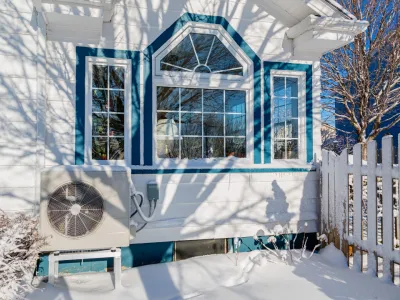ECO Act would update Minnesota’s energy conservation policy

Published January 26, 2021
CUB’s executive director, Annie Levenson-Falk, will testify today before the Minnesota House Climate and Energy Committee in favor of a bill to update the state’s energy conservation policy.
The Energy Conservation and Optimization (ECO) Act would make modest but important changes to the Conservation Improvement Program (CIP) by expanding the types of conservation measures that would be available to consumers and increasing opportunities for low-income households. It is being championed by Democrat Zack Stephenson in the House (HF164) and Republican Jason Rarick in the Senate (SF227). The product of three years of work and negotiation among stakeholders (including CUB), the ECO Act is supported by the state’s cooperative, municipal, and investor-owned utilities, clean energy advocates, trade unions, electrical and mechanical contractors, and the Walz administration. Today’s hearing picks up the conversation from last year, which was cut short when the COVID emergency hit.
At CUB, we frequently refer Minnesotans to their utilities’ energy conservation programs in order to reduce their energy bills on a permanent basis. Under the current law, electric and natural gas utilities must offer rebates and other measures to help their customers save energy. Any measures must be cost effective, and collectively CIP has saved Minnesotans billions of dollars.
The ECO Act will help to ensure that utilities and their customers can continue to take advantage of such savings opportunities as the energy world modernizes.
The bill will allow efficient fuel switching to be a part of utilities’ conservation programs for the first time. That means that utilities can provide conservation incentives to help a customer save energy even if they do so by using a different fuel – say, installing an air source heat pump to cut down on the amount of propane or fuel oil they need to use – as long as the new measure saves money, reduces emissions, and uses less energy overall.
The ECO Act recognizes that when energy is used can be as important as how much energy is used in total. Meeting electricity demand during peak demand hours can be extremely expensive, and peak electricity can also be the most polluting, as utilities must call on even their least efficient generators to meet customers’ needs. The bill allows utilities to offer load management programs to shave peak demand alongside traditional conservation measures, things like opt-in programs for consumers to allow a utility to cycle their air conditioner during peak hours or to heat up an electric water heater overnight in exchange for savings on their monthly bills.
The bill would also increase the energy savings goal for investor-owned electric utilities. Under current law, electric utilities have a goal of saving at least 1.5% of sales each year through their conservation programs. The ECO Act would increase this to 1.75% for Minnesota Power, Otter Tail Power, and Xcel Energy’s electric business.
The amount that utilities are required to spend on low-income conservation programs would increase under the ECO Act, as well, which is especially important, as low-income households see the most meaningful benefits from reducing their energy costs. The bill would also allow a portion of those funds to be spent on so-called preweatherization measures: things like remediating asbestos-containing vermiculite insulation and updating old wiring before adding insulation, which prevent efficiency improvements from being made in many Minnesota homes today.
Despite its wide support, this bill faces important opposition from some fossil fuel proponents unhappy with its allowance of efficient fuel switching. However, the bill does nothing more than help consumers find the most efficient option for their homes. In cases where it is more efficient, less polluting, and saves money to switch to another fuel, it absolutely makes sense for a consumer to do so.
If you would like to support energy conservation, please contact your Senator and Representative and ask them to support the ECO Act. You can find your legislators’ names and contact information here. And don’t hesitate to contact me if you have any questions: annielf@cubminnesota.org